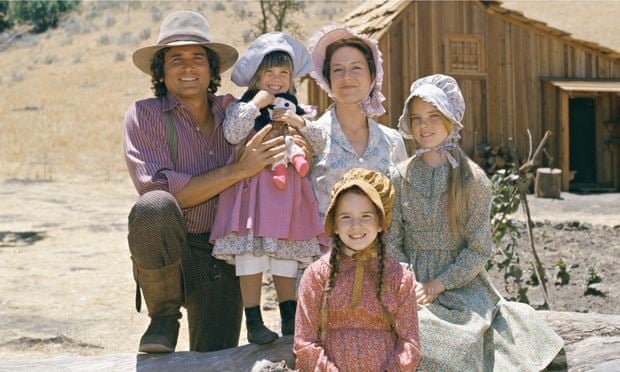Pioneer Girl by Laura Ingalls Wilder review–gritty memoir dispels Little House myths
Full of theft, alcoholism and violence, the novelist’s unvarnished account of her childhood is a darker, more vicious affair
By Sarah Churchwell
Nor was the Ingalls family’s progress a simple westward expansion, as the novels more or less report it: Wilder deliberately simplified their back-and-forth journeys across the midwest in order to create the impression of westward progress, an image in keeping with her theme of nation-building. In fact, the Ingallses retreated east more than once, while the self-styled “pioneers” were land-grabbing as fast as they could: manifest destiny was a giant get-rich-quick scheme. The family emerges as far more opportunistic, even on occasion unscrupulous, than the whitewashed novels would have us believe. Charles Ingalls knew that he was in Indian Territory illegally, while his wife’s brother Tom went to the Badlands on an ill-fated and illegal search for gold. The family snuck away from debts on at least one occasion, making their escape in the middle of the night. The fundamental drama in the novels comes not from conflicts within the family, but with the external forces of government, Indians and nature. Of the three, the last is the one we are most apt to sympathise with today; the attitude of the settlers to the Indians makes for uncomfortable reading (“Treaties or no treaties, the land belongs to folks that’ll farm it. That’s only common sense and justice,” one neighbour declares). It is an attitude that the Ingallses and their relatives clearly shared; many of their actions were in flagrant violation of treaties.
The most extensive difference between the two accounts is Wilder’s decision to excise an entire interlude in Iowa from the novels. The family’s retreat to the east undermined her triumphalist tale of westward progress, but their time in Iowa also featured some of the family’s grimmest experiences. They lived in a hotel adjacent to a saloon, which is hard to imagine the fictional Ma Ingalls permitting; the decision was a mark of their “financial desperation,” as the editor of Pioneer Girl notes. There were bullet holes in a wall, made by a drunken man shooting at his wife; another dragged his wife around by her long hair, carrying a lamp that was pouring kerosene; Charles Ingalls intervened to keep them all from being burned to death.


No comments:
Post a Comment